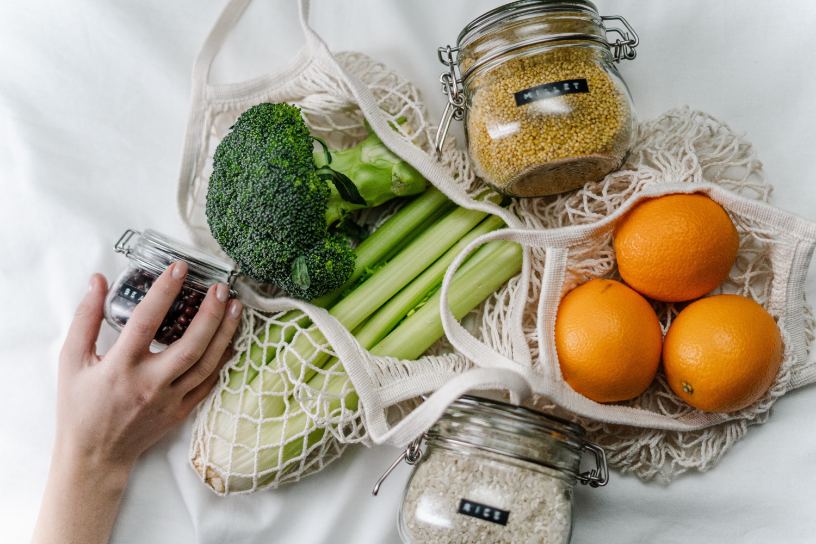Introduction
In a world where sustainability is becoming more critical, many people adopt a zero-waste lifestyle. The kitchen, often the heart of the home, is one of the best places to start. However, space constraints can make it tricky for those living in tiny apartments. Don’t worry! You can have a zero-waste kitchen even in the smallest spaces with a few clever tips.
Why Go Zero-Waste in the Kitchen?
Adopting zero-waste habits in your kitchen has multiple benefits beyond just environmental ones. It can save you money, help you eat healthier, and reduce the clutter in your apartment.
Benefits of a Zero-Waste Kitchen
Reducing Environmental Impact
One of the main reasons to go zero-waste is to reduce your contribution to landfills. By cutting down on food packaging, single-use plastics, and food waste, you’ll help minimize your carbon footprint.
Cost-Savings
While reusable items and zero-waste tools might seem to cost more initially, the savings build over time. Reusing jars and bags and buying food in bulk often cost much less than buying packaged food.
Healthier Lifestyle
Zero-waste living encourages cooking at home and using fresh, whole ingredients, which naturally promotes a healthier lifestyle. You’ll avoid processed foods packed in plastic and focus on what’s better for you and the planet.
Essential Zero-Waste Kitchen Tools
Transitioning to a zero-waste kitchen starts with gathering essential tools to make the process easier.
Reusable Containers and Bags
Ditch single-use plastic bags and opt for reusable alternatives.
Mason Jars and Glass Containers
Mason jars are perfect for storing dry goods, leftovers, and even liquids. They also come in various sizes, which is great for tiny kitchens with limited space.
Beeswax Wraps
These reusable wraps are a great alternative to plastic cling wrap. They’re versatile and can cover bowls, wrap sandwiches, or store fresh produce.
Compost Bin or Bokashi Bin
Even in a tiny apartment, you can set up a compost bin or try a Bokashi bin, which ferments food waste to be used later as compost. This helps reduce the amount of organic waste in the trash.
Reusable Cloth Towels and Sponges
Instead of paper towels, opt for cloth towels or reusable sponges. These can be washed and reused, reducing the need for disposables.
Reducing Food Waste
One of the most significant parts of a zero-waste kitchen is learning how to reduce food waste.
Smart Meal Planning
Planning your meals helps avoid impulse buys and ensures you only purchase what you’ll use. This is especially useful in tiny kitchens where space is limited.
Store Food Properly to Last Longer
Learning how to store food correctly can significantly affect how long it lasts.
Use the Freezer
Don’t let food go bad — freeze leftovers and ingredients before they spoil. Freezing also allows you to batch-cook meals, saving time and reducing waste.
Airtight Containers
Invest in airtight containers for dry goods like grains, pasta, and snacks. These will help keep food fresh longer and prevent pantry pests.
Turn Scraps into Broths and Soups
Vegetable scraps, bones, and other leftovers can be transformed into broths and soups. That prevents waste and creates flavorful meals at no additional cost.
Zero-Waste Grocery Shopping
Shop in Bulk
When possible, buy in bulk to reduce packaging waste. Many grocery stores have bulk bins for grains, nuts, spices, and more.
Bring Your Bags and Containers
Always bring your reusable bags and containers when shopping. It reduces the need for plastic bags and helps keep your kitchen clutter-free.
Choose Package-Free Products
Look for products that are free of plastic packaging. Farmer’s markets or zero-waste stores often offer items like produce, bread, and cleaning products without unnecessary packaging.
Eco-Friendly Kitchen Cleaning Tips
Keeping your kitchen clean doesn’t mean you need to use harsh chemicals or generate waste.
Make Your Cleaning Solutions
You can easily make natural cleaners using simple ingredients like vinegar, baking soda, and essential oils.
Use Natural Scrubbers and Brushes
Swap out plastic sponges for natural brushes made from coconut fibers or bamboo. These are biodegradable and much better for the environment.
Recycling and Composting in a Small Space
Create a Mini Recycling Station
Even with limited space, you can create a small recycling area. Dedicate a kitchen corner to sorting recyclables like glass, plastic, and paper.
Apartment-Friendly Composting Options
If you can’t have a compost pile, there are still options for composting in an apartment. Consider a small worm bin or Bokashi system to compost food scraps.
Energy Efficiency in the Kitchen
Use Energy-Efficient Appliances
Small appliances like slow cookers, pressure cookers, and toaster ovens use less energy than traditional ovens. When replacing old appliances, look for energy-efficient models.
Optimize Cooking Practices
Cooking efficiently can also reduce energy usage. To save energy, always cover pots when boiling water and try to cook multiple items at once.
Conscious Cooking Techniques
Cook in Batches
Batch cooking not only saves time but also reduces food waste. You can store meals for later in the week by cooking in larger quantities, minimizing the need to cook every day.
Use Minimal Water and Energy
Simple adjustments, such as using less water to boil or turning off the stove a few minutes early (and letting the residual heat finish cooking), can help reduce your overall energy use.
How to Store Zero-Waste Items in a Small Space
Utilize Vertical Storage
Vertical space is your best friend in a small kitchen. Install shelves or hooks to hang reusable bags, jars, and tools.
Maximize Under-the-Sink Space
The area under your sink often needs to be more utilized. Store compost bins, recycling, and cleaning supplies there.
Creative Reuse of Kitchen Waste
Turn Food Scraps into Fertilizer
Even if you don’t have a garden, you can turn food scraps into potted plants or balcony garden fertilizer.
Repurpose Jars, Bottles, and Containers
Jars and bottles can be reused for various purposes, from food storage to organizing pantry items or even as vases.
Staying Consistent with Zero-Waste Habits
Build a Routine
Incorporate these habits into your daily routine to make zero-waste living easier. To stay organized, set specific days for meal planning, shopping, and recycling.
Set Realistic Goals
Going zero-waste is a journey; setting small, achievable goals is essential. Don’t be discouraged by setbacks — every little bit helps.
Supporting Local and Sustainable Brands
Whenever possible, support local businesses and brands that prioritize sustainability. By doing so, you’re contributing to a more eco-friendly economy and encouraging responsible practices.
Conclusion
Living a zero-waste lifestyle in a tiny apartment is not only possible but incredibly rewarding. With thoughtful planning, the right tools, and a commitment to reducing waste, you can transform your small kitchen into a sustainable, eco-friendly space that benefits you and the planet.
FAQs
Can I compost in a small apartment?
You can use a small Bokashi bin to compost food scraps in an apartment.
How do I store bulk food in a tiny kitchen?
Use mason jars, glass containers, or stackable bins to store bulk foods and maximize vertical storage space.
What are some zero-waste alternatives to plastic bags?
You can use cloth bags, beeswax wraps, and glass containers as sustainable alternatives to plastic bags.
How can I reduce food waste without a garden?
You can reduce food waste by planning meals, freezing leftovers, and using food scraps to make broths and soups.
What’s the best way to clean naturally in the kitchen?
Vinegar, baking soda, and essential oils can be used to make natural cleaning solutions that are effective and eco-friendly.







